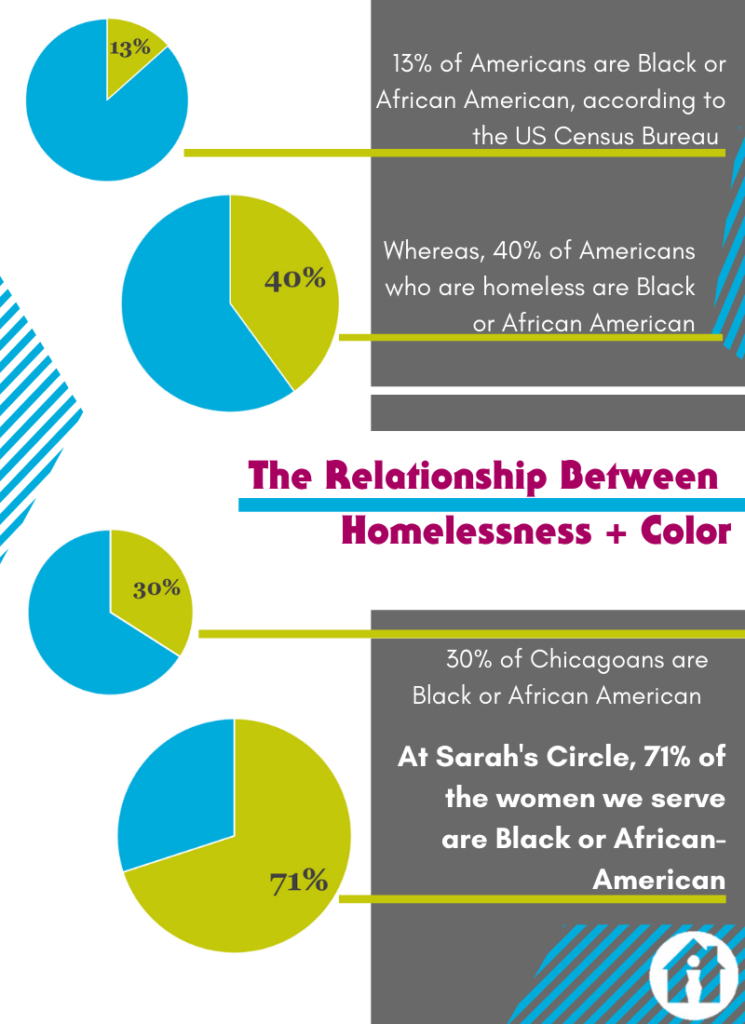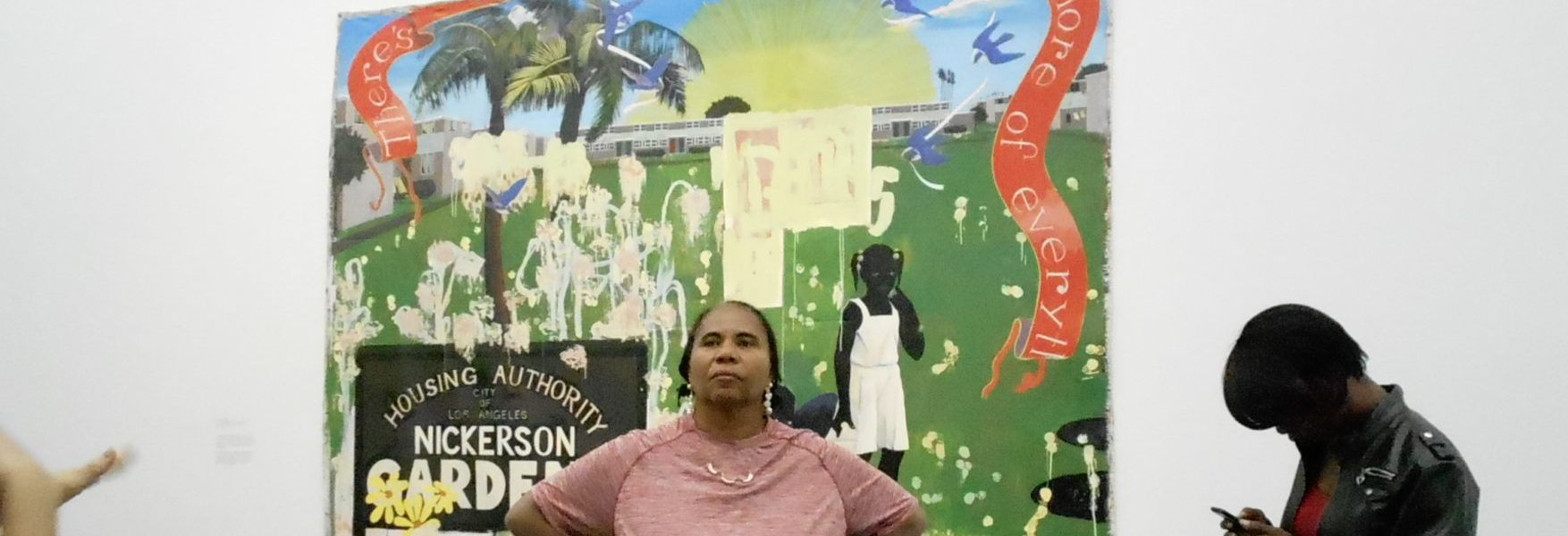Posted on July 29, 2020 View all news
Nationally and in Chicago, Black and African-American women are over-represented among people experiencing homelessness. These disparities are not a coincidence. Rather, they are the result of decades of institutionalized housing and racial discrimination.

https://www.census.gov/quickfacts/chicagocityillinois
Housing Discrimination
Housing holds the power of access to education, healthcare, justice, the food you eat, and your ability to accrue wealth. The effects of housing discrimination systems, such as redlining, can still be felt today.
In 1933, the US government began a program intended to increase America’s housing stock. This new effort, called redlining, sought to grow the middle class, but systematically excluded people of color and the poor.
Redlining is the refusal to lend money or extend credit to borrowers in certain areas of town deemed undesirable due to the presence of poor people, minorities, and particularly Black people. This resulted in highly segregated neighborhoods.
Today, redlining continues through the actions of the gatekeepers to housing. In a recent report, it was found that landlords in several Chicago neighborhoods do not adhere to fair housing laws, particularly limiting the housing options for minorities and individuals with housing choice vouchers – often referred to as Section 8. The systematic denial of housing to people in poverty hoards premium resources to people at the upper echelons of society, keeping many from achieving the “American Dream” for generations.
Impact on Sarah’s Circle Clients
Women coming to Sarah’s Circle for help struggle to transcend their circumstance because of the groundwork laid by discriminatory practices like redlining. Compounded by the gender wage gap, single, unaccompanied women are unfortunately and understandably the fastest growing subpopulation within the homelessness crisis.
The Intersection of Race and Womanhood
The lived experiences of Black women are not compartmentalized by race and gender. At the intersection of being Black and female, are innumerable complex issues that the feminist movement has failed to address.
We are reminded that although the 19th amendment granted women the right to vote in 1920, discriminatory practices such as poll taxes and literacy tests continued to oppress Black women’s right to vote until the passage of the 1965 Voting Rights Act.
What are some ways in which Black women suffer at the oppressive hands of both racism and sexism?
- Health inequities: Black women are 2 to 6 times more likely to die in child birth.
- Gender wage gap: Black women make on average 62 cents on the white man’s dollar, 17 cents less than white women.
- Fractured family structure: The mass incarceration of Black men as a result of decades of racist legislation places a significant burden on Black women who have to shoulder the household on a singular and already deflated income.
- Voting Rights: After the ratification of the 19th amendment, the battle for voting was ended for white women. Meanwhile, African American women voters in the Jim Crow South continued to encounter disenfranchisement strategies faced by their African American male counterparts.
Resources to learn more:

